Disinformation, fake news and literacy skills – A thread
We’ve just released a https://abs.twimg.com/emoji/v2/... draggable="false" alt="🆕" title="Quadratisches NEW" aria-label="Emoji: Quadratisches NEW"> #OECDPISA report on digital literacy skills
https://abs.twimg.com/emoji/v2/... draggable="false" alt="🆕" title="Quadratisches NEW" aria-label="Emoji: Quadratisches NEW"> #OECDPISA report on digital literacy skills
As we tackle #COVID disinformation, the “infodemic”, here’s what this report tells us https://abs.twimg.com/emoji/v2/... draggable="false" alt="👇" title="Rückhand Zeigefinger nach unten" aria-label="Emoji: Rückhand Zeigefinger nach unten">
https://abs.twimg.com/emoji/v2/... draggable="false" alt="👇" title="Rückhand Zeigefinger nach unten" aria-label="Emoji: Rückhand Zeigefinger nach unten">
/1
We’ve just released a
As we tackle #COVID disinformation, the “infodemic”, here’s what this report tells us
/1
In the past, students could look up information in an encyclopedia and rely on it to be accurate and true
Today, Google presents them with millions of answers and nobody tells them what is right or wrong, true or not true
/2
Today, Google presents them with millions of answers and nobody tells them what is right or wrong, true or not true
/2
The ability to navigate ambiguity, triangulate viewpoints and to make sense out of content has never been more important
Yet less than half of 15-year-olds in @OECD countries were able to distinguish fact from opinion in PISA
/3
Yet less than half of 15-year-olds in @OECD countries were able to distinguish fact from opinion in PISA
/3
PISA asked students if they’d click a link in an e-mail from a well-known mobile operator & fill out a form with their data to win a phone - a phishing e-mail
40% of students responded that clicking on the link was somewhat or very appropriate, on average across the @OECD
/4
40% of students responded that clicking on the link was somewhat or very appropriate, on average across the @OECD
/4
Phishing e-mails, deceptive online advertising, social media algorithms that sort us into echo chambers of like-minded people…
How can we live successfully in this new world of information?
/5
How can we live successfully in this new world of information?
/5
Equipping people with the right skills is surely a good place to start – and that is the focus of our new report
It looks at ways to strengthen students’ capacity to navigate ambiguity and manage complexity in the digital world
/6
It looks at ways to strengthen students’ capacity to navigate ambiguity and manage complexity in the digital world
/6
The good news is this report finds that education can make a difference
We found that education systems in which more students are taught in school how to detect bias have a higher percentage of students who can correctly distinguish facts from opinions in the PISA tasks
/7
We found that education systems in which more students are taught in school how to detect bias have a higher percentage of students who can correctly distinguish facts from opinions in the PISA tasks
/7
54% of students said they were trained at school to recognise whether information is biased or not, on average across the @OECD
/8
/8
The relationship between access to this kind of training and students’ capacity to distinguish fact from opinion plays out quite differently across countries
Countries and schools could learn from each other how best to implement such programmes
/9
Countries and schools could learn from each other how best to implement such programmes
/9
#COVID has increased the urgency with which this issue needs to be addressed
But it has also increased momentum among children, teachers and policy makers to support digital literacy skills
/10
But it has also increased momentum among children, teachers and policy makers to support digital literacy skills
/10
As international debate focuses on foreign trolls and conspiracy theorists, the moment is emerging to integrate a new digital literacy into learning and teaching that guarantees its independence from partisan and commercial influence
/11
/11
21st-century literacy means stopping to look both ways before proceeding on line
It means checking facts before basing opinions on them
It means asking questions about sources of information
/12
It means checking facts before basing opinions on them
It means asking questions about sources of information
/12
These skills have applications far beyond detecting fake news and disinformation: to secure the act of making informed decisions is to secure the basis for functioning democracies
/13
/13
Being able to strike a balance between the competing demands of the modern world – equity and freedom, autonomy and community, innovation and continuity, efficiency and democratic processes – all hinges on these 21st-century literacy skills
/14
/14
The strategies and tools to address these challenges and develop digital literacy skills are ready
They’re being tried and tested by teachers around the world who have understood what it means to educate students for their future, rather than for our past
/15
They’re being tried and tested by teachers around the world who have understood what it means to educate students for their future, rather than for our past
/15
Read the full #OECDPISA digital literacy report  https://abs.twimg.com/emoji/v2/... draggable="false" alt="👉" title="Rückhand Zeigefinger nach rechts" aria-label="Emoji: Rückhand Zeigefinger nach rechts"> https://oe.cd/3DW ">https://oe.cd/3DW"...
https://abs.twimg.com/emoji/v2/... draggable="false" alt="👉" title="Rückhand Zeigefinger nach rechts" aria-label="Emoji: Rückhand Zeigefinger nach rechts"> https://oe.cd/3DW ">https://oe.cd/3DW"...
/16
/16

 Read on Twitter
Read on Twitter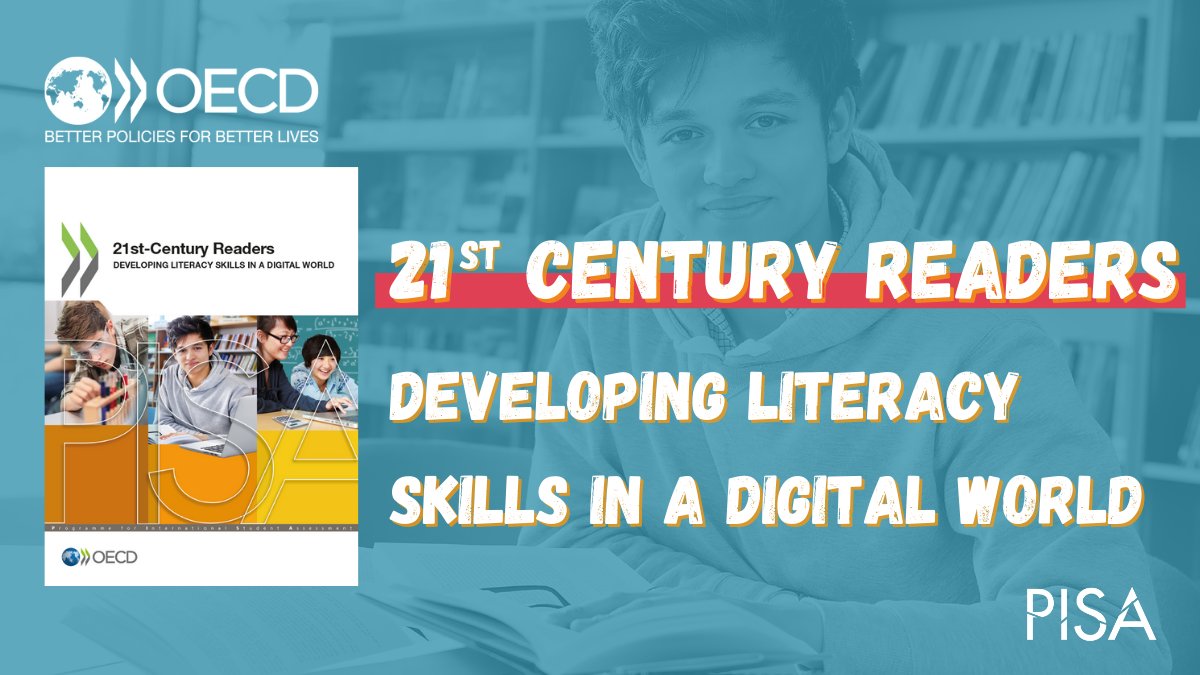 #OECDPISA report on digital literacy skillsAs we tackle #COVID disinformation, the “infodemic”, here’s what this report tells us https://abs.twimg.com/emoji/v2/... draggable="false" alt="👇" title="Rückhand Zeigefinger nach unten" aria-label="Emoji: Rückhand Zeigefinger nach unten">/1" title="Disinformation, fake news and literacy skills – A threadWe’ve just released a https://abs.twimg.com/emoji/v2/... draggable="false" alt="🆕" title="Quadratisches NEW" aria-label="Emoji: Quadratisches NEW"> #OECDPISA report on digital literacy skillsAs we tackle #COVID disinformation, the “infodemic”, here’s what this report tells us https://abs.twimg.com/emoji/v2/... draggable="false" alt="👇" title="Rückhand Zeigefinger nach unten" aria-label="Emoji: Rückhand Zeigefinger nach unten">/1" class="img-responsive" style="max-width:100%;"/>
#OECDPISA report on digital literacy skillsAs we tackle #COVID disinformation, the “infodemic”, here’s what this report tells us https://abs.twimg.com/emoji/v2/... draggable="false" alt="👇" title="Rückhand Zeigefinger nach unten" aria-label="Emoji: Rückhand Zeigefinger nach unten">/1" title="Disinformation, fake news and literacy skills – A threadWe’ve just released a https://abs.twimg.com/emoji/v2/... draggable="false" alt="🆕" title="Quadratisches NEW" aria-label="Emoji: Quadratisches NEW"> #OECDPISA report on digital literacy skillsAs we tackle #COVID disinformation, the “infodemic”, here’s what this report tells us https://abs.twimg.com/emoji/v2/... draggable="false" alt="👇" title="Rückhand Zeigefinger nach unten" aria-label="Emoji: Rückhand Zeigefinger nach unten">/1" class="img-responsive" style="max-width:100%;"/>
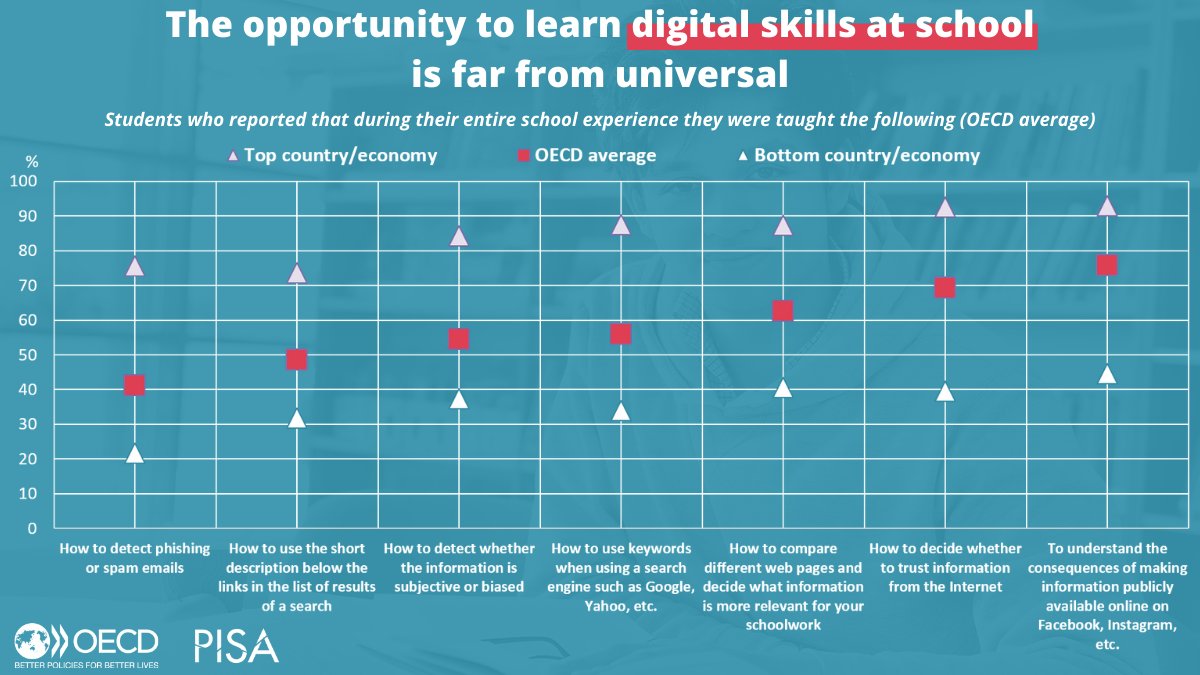
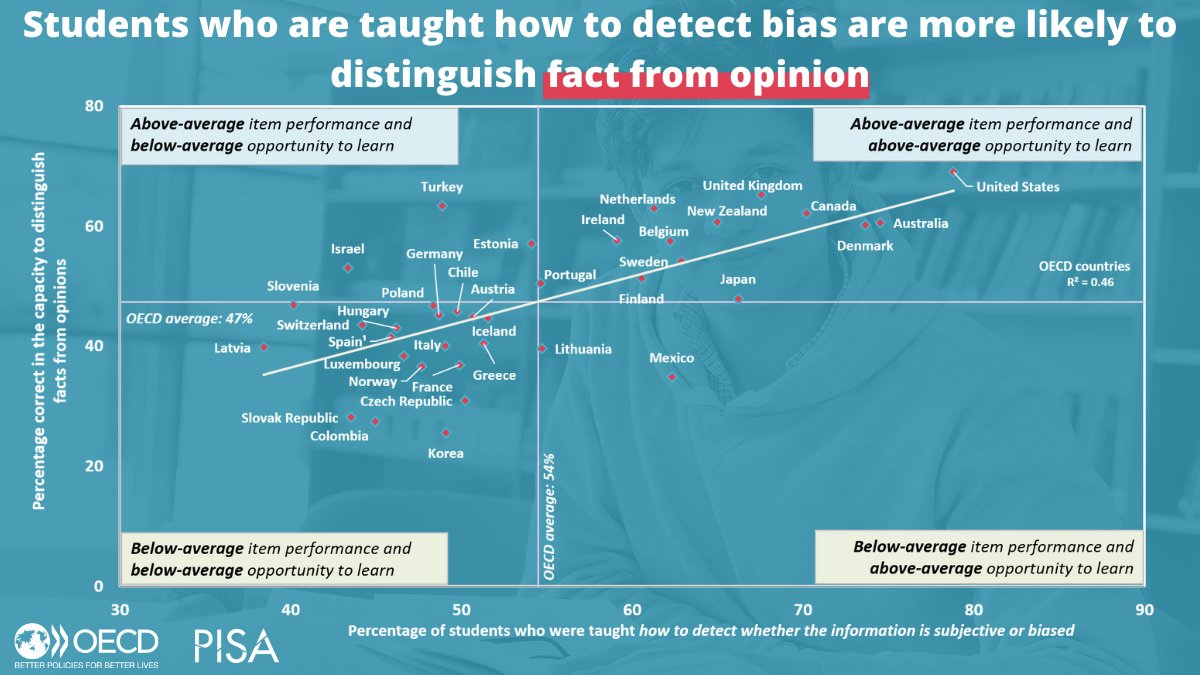
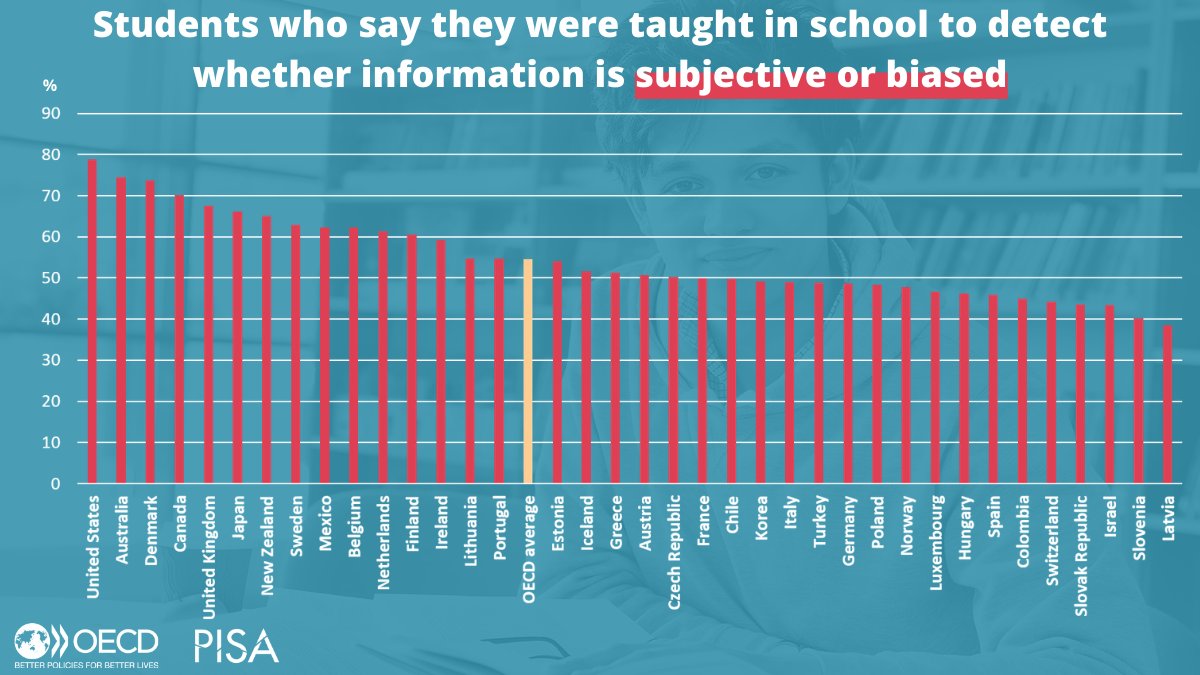
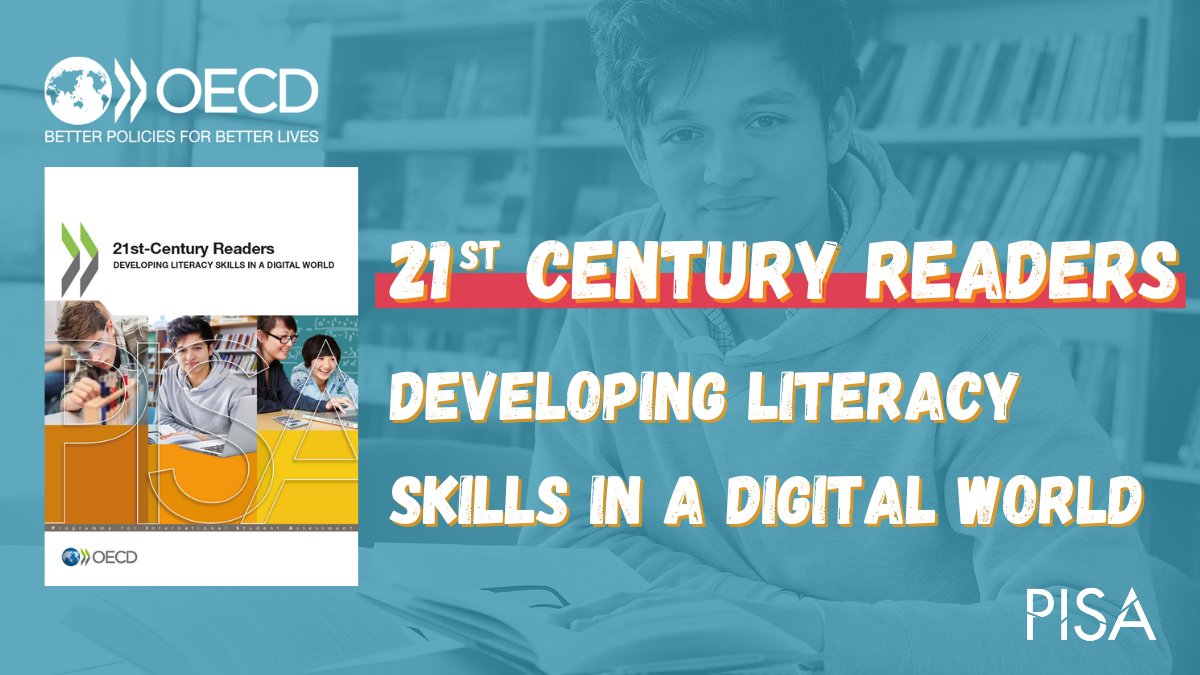 https://oe.cd/3DW"... /16" title="Read the full #OECDPISA digital literacy report https://abs.twimg.com/emoji/v2/... draggable="false" alt="👉" title="Rückhand Zeigefinger nach rechts" aria-label="Emoji: Rückhand Zeigefinger nach rechts"> https://oe.cd/3DW"... /16" class="img-responsive" style="max-width:100%;"/>
https://oe.cd/3DW"... /16" title="Read the full #OECDPISA digital literacy report https://abs.twimg.com/emoji/v2/... draggable="false" alt="👉" title="Rückhand Zeigefinger nach rechts" aria-label="Emoji: Rückhand Zeigefinger nach rechts"> https://oe.cd/3DW"... /16" class="img-responsive" style="max-width:100%;"/>


